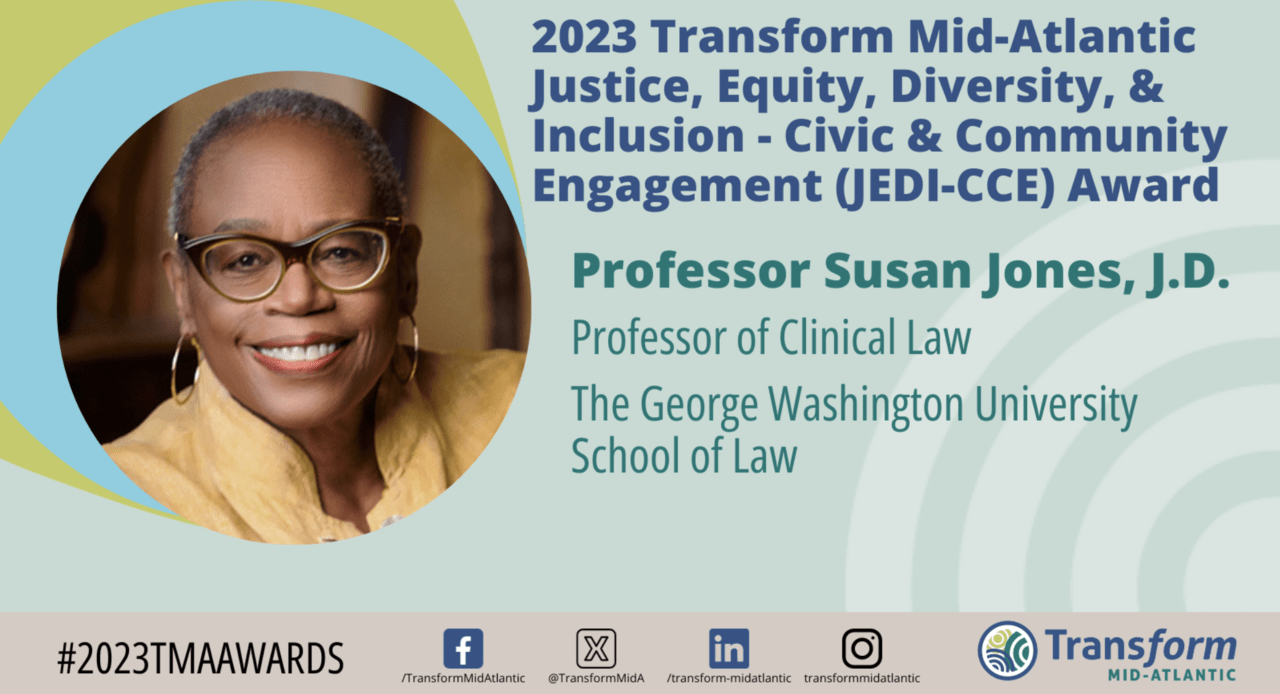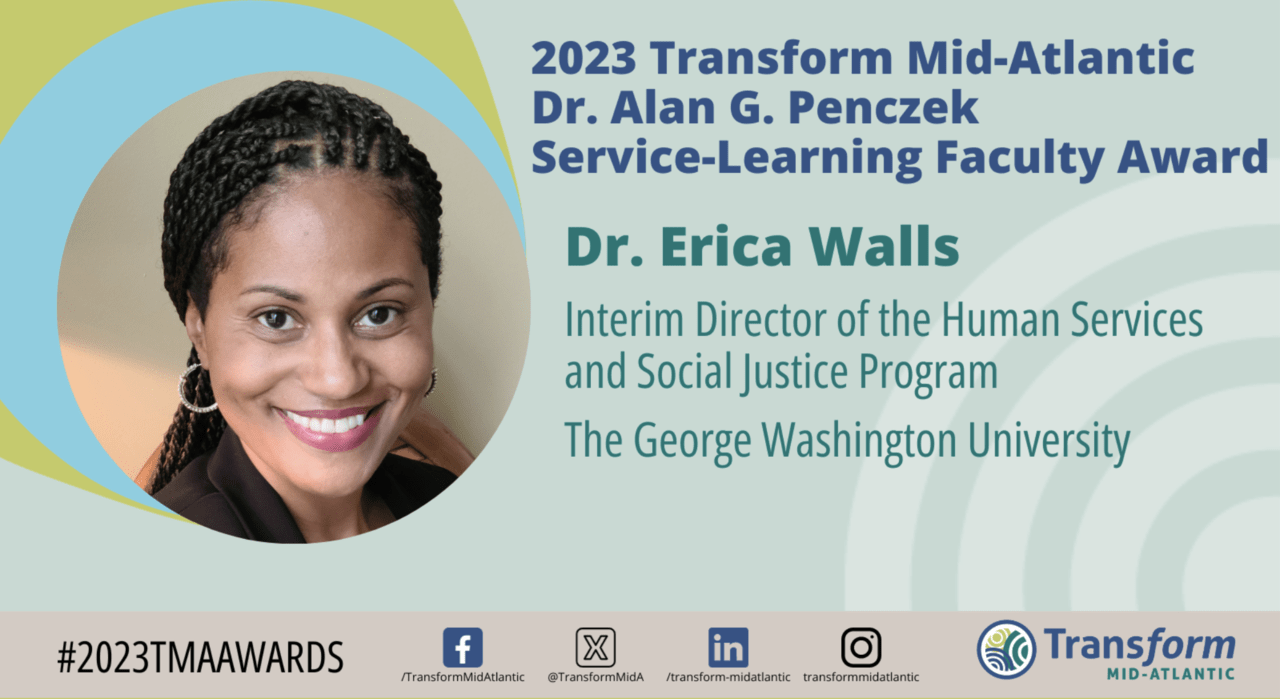
GW Law students learn client-centered and holistic lawyering skills in business law under Professor of Clinical Law Susan Jones’ leadership.
Jones was the recent recipient of the 2023 Transform Mid-Atlantic Justice, Equity, Diversity, & Inclusion – Civic & Community Engagement (JEDI-CCE) Award for her work expanding opportunities for D.C. business owners and community-serving nonprofit organizations owned and operated primarily by people of color and women and bringing her law students the skills and confidence to be great lawyers.
With 35 years now under her belt at the GW Law School, Jones’ leadership roles have expanded tremendously since her start in 1988 as Director and Supervising Attorney of the Small Business Clinic (later renamed to include Community Economic Development), like her position as 2006 chair of Association of American Law Schools Section on Clinical Legal Education and numerous leadership roles within the American Bar Association. She has published extensively in her field, is the author of A Legal Guide to Microenterprise Development, and the co-editor of Building Healthy Communities: A Guide to Community Economic Development for Advocates, Lawyers and Policy Makers and Investing for Social Impact, Economic Justice and Racial Equity, books published by American Bar Association.
Jones said her role as both a professor and scholar intertwine to help students as they represent small businesses and nonprofits that make an impact on their community. She observed that students come out of her class knowing that they can be changemakers and “do well and good” as lawyers.
“The clinic makes them very reflective about their own purpose and professional trajectory,” Jones said.
Jones said her work comes naturally to her not only from growing up in New York City during the movements of civil, labor and women’s rights but also watching her mother’s work as a social worker and professor and her father’s work with youth gangs in lower Manhattan.
“This work is very organic to me,” Jones said. “It doesn’t feel like work, it feels like purpose.”
Jones cites her parents’ impactful community work as the anchor for her commitment to corporate legal work supporting neighborhood small businesses and community-serving nonprofits. She said it’s critical for her students as budding lawyers to know their client’s business and provide comprehensive, holistic legal services and access to other helpful resources.
Last fall, the clinic represented Global Consciousness Institute (GCI), a nonprofit that aims “to elevate global consciousness as a field of study, to transform education and economic practices and policies, and to provide strategic and energetic focus for the nurturing of change agents and leaders.” The student teams provided legal counsel and helped GCI incorporate as a D.C. nonprofit organization and gain federal tax exemption from the IRS. This case and many others familiarize students with corporate law and help them to gain hands-on practical legal experience and confidence as student attorneys.
Jones’s perspective is enhanced by her expertise as an executive leadership coach, committed to positive societal transformation and change. She said it’s amazing to see how her former students have grown into lawyer-leaders and how their clinic work has benefited the community.
“I can walk around D.C. and know where we made a difference,” Jones said.





